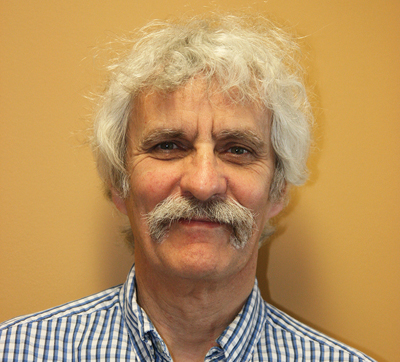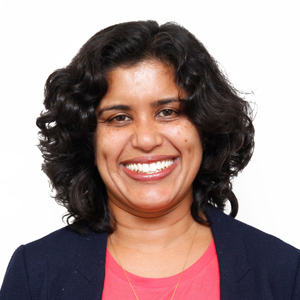Meet Peter Cresswell
In August, immunologist Peter Cresswell at Yale University joined The Journal of Biological Chemistry as an associate editor. One of his laboratory’s research interests is antigen processing by major histocompatibility complexes. Among his many professional honors, Cresswell is a member of the National Academy of Sciences and the Institute of Medicine of the National Academies. He is also a fellow of the Royal Society in the U.K. Cresswell spoke with ASBMB Today about his research interests, his thoughts on the JBC and his career path. Below are edited excerpts from the interview.

Briefly explain what your research group currently is studying.
The major interest in the lab has been historically in antigen processing, which is basically how peptides bind to major histocompatibility complexes, which are then recognized by T-cells. I’m interested in the biochemistry and cell biology of what controls the assembly of MHC molecules and peptides. There are two kinds. One is MHC class I, and the other is MHC class II. We finished up with MHC class II more or less a few years ago with not much in the way of biochemical questions left to ask.
The last few years have been much more focused on MHC class I. There is a whole set of complicated assembly processes, which involves endoplasmic reticulum chaperones, some dedicated proteins and a not-well-characterized mechanism that facilitates the exchange of peptides so that you end up with the highest affinity peptide possible before the class I molecule can get out of the endoplasmic reticulum and be expressed on the cell surface. We’re trying to understand that mechanism in absolute detail.
Much more recently, we’ve become interested in an interferon-inducible protein, which we call viperin. We’ve recently discovered that human cytomegalovirus (HCMV) uses this viperin molecule to facilitate infection of cells. The virus rapidly induces viperin expression, and a protein encoded by HCMV actually binds to viperin and takes it to the mitochondria, where viperin has some pretty significant metabolic effects. It shuts down fatty-acid beta-oxidation and induces more fatty-acid biosynthesis, which we’re currently interpreting as a mechanism for making lots of membrane that the virus can use to envelop itself. That’s now a major focus of the lab. We’re trying to understand what viperin normally does to allow HCMV to make this adaptation.
What have been the highlights of your career?
We identified a number of molecules that are critical for the process of antigen processing. There’s a catalyst for peptide exchange from MHC II molecules that is called DM. We actually showed how that worked in a cell-free system. Just with DM and MHC class II molecules, we could push the exchange of peptides.
We also discovered the protein in the MHC class I pathway that is called tapasin and catalyzes peptide exchange in that system. We eventually were able to make that work in a cell-free system too, but that proved to be much more complicated. It took a lot of years and the energy of one particularly talented postdoc to make that work.
Tell us about your academic background and research training.
I was an undergraduate in chemistry at University of Newcastle Upon Tyne in the U.K. (and) not totally delighted with it. I liked organic chemistry and not much else. I didn’t like lab work. I thought labs were fairly boring. You’re always following a recipe, kind of like cooking.
Then I did a master’s degree … in an area called microbiological chemistry, which was sort of a combination of chemistry and biochemistry. Getting into the master’s degree was the turning point. It was the first time I did an experiment where I didn’t know the answer. I didn’t know what the result was going to be. All of a sudden, I was fired up. I thought it was really interesting to try to design experiments to answer questions when you didn’t know the answer in advance. It was a major intellectual stimulus.
Then I moved into immunology for my Ph.D. (at London University), not really knowing what I was getting into. I thought it was interesting and, at the time, a very poorly understood physiological response. I then moved to the USA for a postdoc to work with Jack Strominger at Harvard University, where my life as a biochemist working on MHC molecules really started.
Who do you consider to be big scientific influences?
That’s a tough question. I think my Ph.D. adviser, Arnold Sanderson, taught me how to do experiments. He taught me the importance of good controls and good experimental technique. My postdoc adviser, Jack Strominger, showed me how important it is to choose a difficult question. Not to do the trivial; do the difficult things.
When I got my first faculty position at Duke University, the chief of the division of immunology was a very talented guy called Bernard Amos, who was probably one of the nicest people you could ever meet. He had this way of treating everyone, from the janitors to professors, exactly the same way. I thought it was just wonderful and very different from anything I’d ever experienced before. I try to follow that principle myself.
What was your reaction when you were asked to join the ranks of the JBC associate editors?
I was pleased to be considered. I’ve had the pleasure of working in an area that combines biochemistry, cell biology and immunology, and I’ve served in editorial positions in the latter two fields. To be asked to do the same in biochemistry was a real honor. I remember Jack Strominger considered his greatest early accomplishment to be publishing three papers in the same issue of the JBC.
How is the new role going so far?
It’s interesting. There are a lot of papers that you get as an (associate editor). I’m surprised by how many of them are in areas about which I really don’t know much. Even though they are immunology, they cover an eclectic mix. There are some things I know very well, and I can immediately pick up a reviewer and say So-And-So is perfect. And then there are things where I have to sit down and think, “Oh my God. Who on Earth am I going to get to review this?” That requires some PubMed searching and checking around to try to find the appropriate reviewers. It’s a little more difficult than I imagined it was going to be.
What do you do outside of the lab?
I’m pretty much a scientist most of the time. I do play acoustic guitar, which is a good way of relaxing after a bad day. I started playing guitar when I was about 14. I played popular music at that time, and I was just playing whatever people played at the time. When I was an undergraduate, I heard some albums by some British folk-blues guitar players, particularly a guy called Bert Jansch, who died last year. Once I heard that music, I thought, “I have to learn to play this stuff!” I started to work on playing a complicated finger style of playing, which I still do.
But I find what I do professionally so enjoyable that I don’t feel the need for a serious interest outside the lab.
For younger scientists, do you have any words of wisdom?
Pick a difficult project that is important, use your imagination and be persistent. Remember that you are more dependent on your students and postdocs than they are on you.
Enjoy reading ASBMB Today?
Become a member to receive the print edition four times a year and the digital edition monthly.
Learn moreGet the latest from ASBMB Today
Enter your email address, and we’ll send you a weekly email with recent articles, interviews and more.
Latest in People
People highlights or most popular articles

2026 ASBMB election results
Meet the new Council members and Nominating Committee member.

Simcox wins SACNAS mentorship award
She was recognized for her sustained excellence in mentorship and was honored at SACNAS’ 2025 National Conference.

From humble beginnings to unlocking lysosomal secrets
Monther Abu–Remaileh will receive the ASBMB’s 2026 Walter A. Shaw Young Investigator Award in Lipid Research at the ASBMB Annual Meeting, March 7-10 in Washington, D.C.

Chemistry meets biology to thwart parasites
Margaret Phillips will receive the Alice and C. C. Wang Award in Molecular Parasitology at the ASBMB Annual Meeting, March 7-10 in Washington, D.C.

ASBMB announces 2026 JBC/Tabor awardees
The seven awardees are first authors of outstanding papers published in 2025 in the Journal of Biological Chemistry.

Decoding how bacteria flip host’s molecular switches
Kim Orth will receive the Earl and Thressa Stadtman Distinguished Scientists Award at the ASBMB Annual Meeting, March 7–10, just outside of Washington, D.C.

